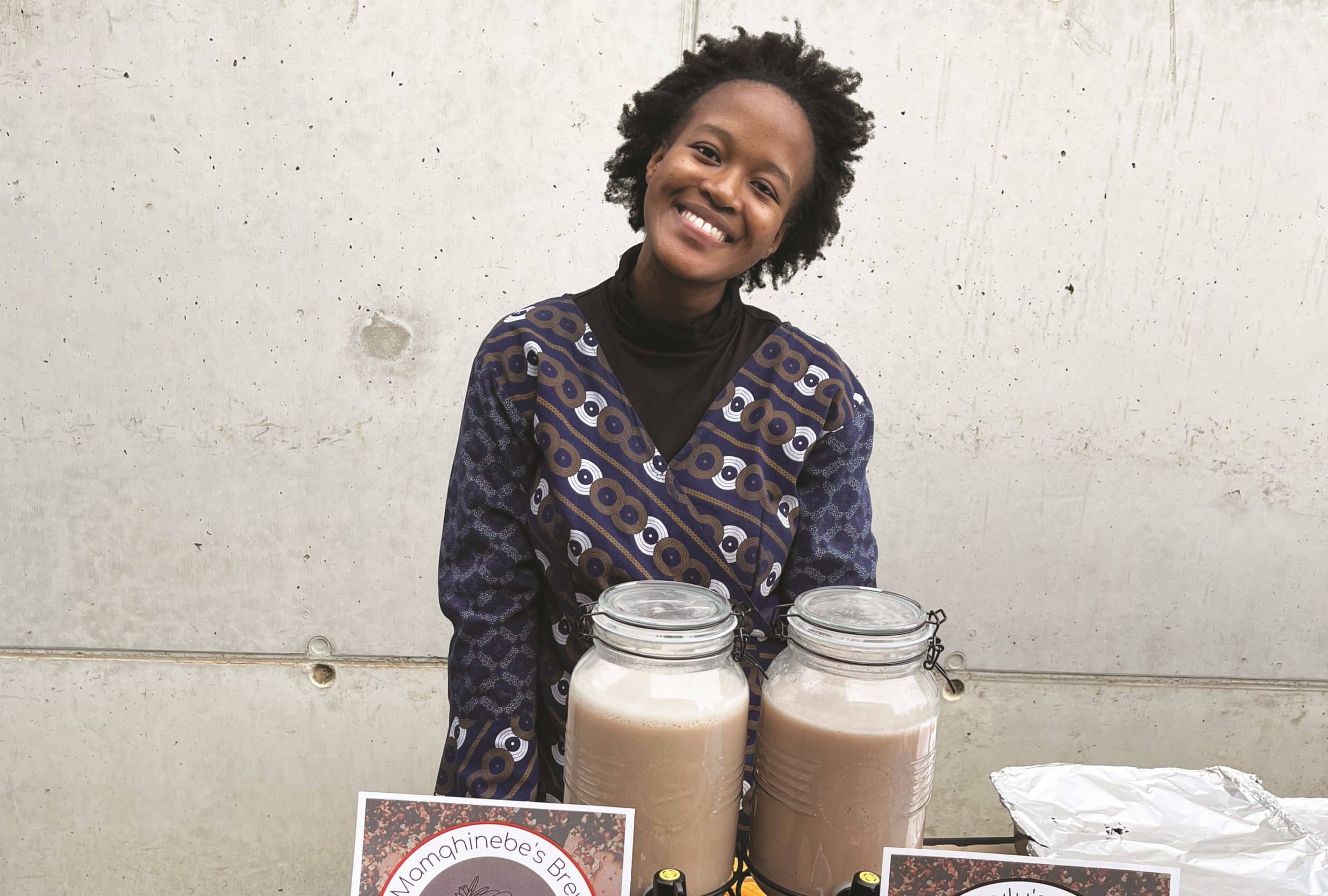Reitumetse Kholumo, the 25-year-old founder of Kwela Brews, is working to ensure that indigenous knowledge systems and makers of homegrown alcohol (umqombothi) earn their rightful place in South Africa’s formal economy.
In apartheid-era South Africa, it was popularly known that if women could not find domestic work, they would turn to brewing beer in their backyard – even though it was illegal– as a means of making ends meet. Eventually, alcohol was supplied at scale that largely supplanted these traditional brewers.
While women from all walks of life are no longer excluded from working in the formal alcohol market, monopolies such as pay disparities continue to reign.
This is something 25-year-old Reitumetse Kholumo hopes to change.
She was in her second year of chemical engineering at the University of Cape Town in South Africa, when on a field trip to one of the top brewers in the country, what stood out for her was the lack of representation.
She was studying bioprocessing and curious about indigenous African beverages, sought lessons in brewing from her grandmother.
Later on, she did a humanities elective about how engineering affects the broader public, specifically with a lens on how the profession was used to engineer apartheid. “I then looked at things a bit differently, being conscious of the fact that if I become a brewer, I’m just one brewer, but there are so many African women who are brewing on the ground, and the engineering solutions that exist do not address their problems,” she says to FORBES AFRICA.
Kholumo entered the informal industry from a bio-engineering perspective, believing the challenges to be efficiency and safety.
While these are valid concerns, once she met the women making beer, she found other more pressing issues.
“When I met more women, their issues were more related to the market itself – they don’t have consistent buyers.”
Part of the reason was the prevalence of low-cost tier beers competing with traditionally-brewed beer.
“The women that brew authentic traditional African beer, they know how to brew safely. Efficiency is something that we are building on in a way that will complement their indigenous knowledge and how they usually brew.”
As the founder of Kwela Brews, Kholumo isn’t going to impose her ideas but rather collaborate with the women to assess the process, and see what they can adopt in their daily practices.
Kwela Brews became a distributor to solve the main problem: finding regular buyers in their relevant low-income communities.
“So, what we do is we pay the women for the brews, and we also supply them with the ingredients that they like. They’re my bosses, if anything,” she laughs.
In 2022, Kwela Brews began testing the market with products – going to Jazz in the Native Yards, a concert hosting South African musicians, primarily held in the Gugulethu township of Cape Town.
They have also now partnered with a local restaurant in Stellenbosch that sees traffic from international students and tourists, so they are widening their reach.
“In the near future, we’re going to be doing tastings and collaborating on events just to de-risk it for them, but also so that we can learn what the market requires.”
Still completing her master’s degree in chemical engineering at Stellenbosch in the Western Cape, Kholumo’s broader interests are the beneficiation of indigenous bio-products when it comes to nutraceuticals and therapeutics. “What I want more than anything is to create a space where indigenous brews are appreciated, as they come from the indigenous knowledge-holders.”
She says each batch of her brew tastes different because it will have different micro-organisms, which are good for people’s gut microbiomes.
“Different women from different tribes will have different ways of brewing, and this is all over sub-Saharan Africa. So I feel like there’s a lot of potential there.”
While she received R20,000 ($1,100) in funding from the University of Cape Town’s student pitch competition, hosted by Akro, along with UCT InvestSoc and UCT Entrepreneurs Society in 2021, she quickly used the startup money. In 2022, she was on the Mastercard Foundation program that gave her another R120,000 ($6,500). And even though it’s an alcoholic product, she wants to eventually get certification about benefits for gut microbiome. She’s raising the bar for homegrown alcohol to be distributed and sold at scale. After all, as they say in South Africa, local is lekker (good).
